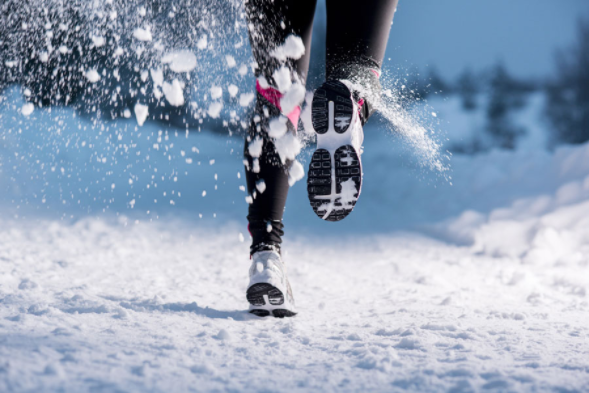Summer time is coming, and you might be thinking your running plan is perfect way to shed some extra pounds and get that “beach bod” you’ve always wanted. I mean it’s perfect, right? Running is great for fat loss. You’ve got a great plan, you’ve got the goal of a race in the fall to keep you focused, you’re super motivated, this is your chance…or is it?
Fat Loss, Exercise’s Side Effect
When you ask people why they’re exercising they’ll often say “to lose fat.” Now as we established in our first blog, about finding your why, this is not a good reason from a motivational standpoint (again, people give up on the WHY of fat loss all the time), but that’s not what I’m talking about here. Scientifically speaking when you perform exercise you receive functional benefits; a healthier heart and lungs, stronger muscles, more energy and so on. You do burn fuel during exercise, but this fuel is largely carbohydrate, and not fat. Fat loss then is exercise’s side effect, if you burn enough calories during exercise and if you do a good job of limiting your calories after you exercise, you’ll put yourself in a calorie deficit and lose fat. Those two “if’s” make fat loss the side effect of exercise.
Running Performance & Fat Loss
As suggested above, you have to consume fewer calories then what you’re burning to lose fat. Although this may sound simple it can be very problematic when training for a performance goal (like running a race) for the following reasons:
- Not having enough calories will result in a reduction in available energy for your runs, which will reduce performance.
- Failing to consume adequate calories can result in your body breaking down muscle tissue for energy when you run.
- Calorie restriction and heavy training increases stress hormone levels (like cortisol, who’s job in the body is to preserve fat and breakdown muscle), and depress fat burning/muscle preserving hormones (like growth hormone and testosterone).
- Lower total calorie intake means fewer carbs (for energy), and protein (for recovery).
The net effect of all of this is running without adequate calories can reduce performance, decrease muscle tissue/increase fat, and even result in injury.
I want to lose fat – what should I do?
All is not lost. If you’re looking to lose some fat preparing for your race, first be okay with it being a side effect of what you’re doing. Start to establish healthy eating habits. Replace “unhealthy” and highly processed foods with fruits, vegetables, and lean proteins. Start to increase your water intake. Begin to take a multivitamin. Eating healthy will not only allow you to perform better, you’ll naturally eat a less (and as a result lose fat). Because it’s healthier food you’ll be able to get away with eating a little less without your performance suffering. On top of that, if you develop healthy nutrition habits when preparing for your race, those same habits will remain after your race when you can start to consciously reduce your calories. The net effect of this will be accelerated weight loss once your race is done.
About the Author:
-

Michael Stack is the founder & CEO of Applied Fitness Solutions and Frontline Fitness Pros. He is a faculty lecturer for the University of Michigan’s School of Kinesiology. He is also the creator and the host of the Wellness Paradox Podcast, produced in conjunction with University of Michigan.
Michael is an exercise physiologist by training and a health entrepreneur, health educator, and fitness industry advocate by trade. He is dedicated to enhancing the standard of practice of, and advocating for, fitness and wellness professionals to ensure they become an essential constituent in the healthcare delivery system.
With a career spanning over three decades in fitness, health, and wellness Michael has a deep knowledge of exercise physiology, health/wellness coaching, lifestyle interventions to mitigate chronic disease and leadership. He is credentialed through the American College of Sports Medicine (ACSM) as an Exercise Physiologist (ACSM-EP), Exercise is Medicine practitioner (ASCM-EIM), and a Physical Activity in Public Health Specialist (ACSM-PAPHS). Michael is a National Strength & Conditioning Association (NSCA) Certified Strength & Conditioning Specialist (CSCS), and a CDC Diabetes Prevention Program (DPP) Lifestyle Coach.
Michael received his undergraduate degree from the University of Michigan’s School of Kinesiology in 2004 and is currently a Master’s of Public Health (MPH) candidate at University of Michigan, with a specific concentration in health behavior and health education.
Michael is a board of directors’ member for the Physical Activity Alliance and Michigan Fitness Clubs Association. He sits on the University of Michigan’s School of Kinesiology Alumni Board of Governors. Michael is an expert curriculum reviewer for the American College of Lifestyle Medicine. Finally, he is a member of the executive leadership team for American Heart Association’s Heart Walk.
Michael lectures nationally for several health/fitness certification and continuing educations, including; IHRSA, the Medical Fitness Association, the National Strength & Conditioning Association, and SCW Fitness.
